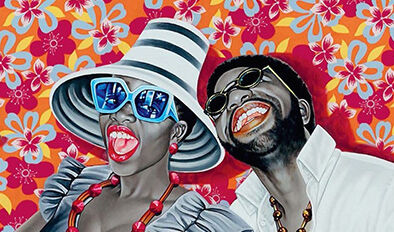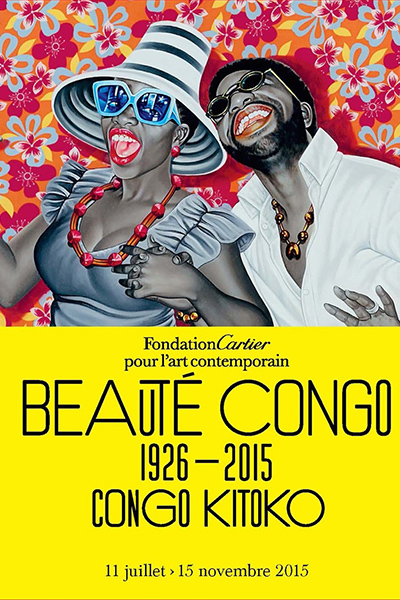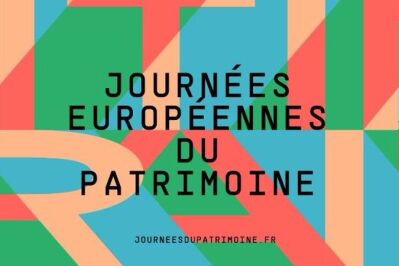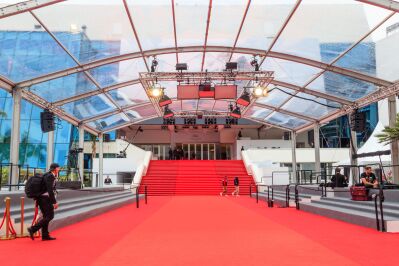 News
News 
Beauté Congo
L’art du Congo à Paris
The "Fondation Cartier pour l’art contemporain" (Cartier Foundation for modern art) presents the exhibition "La fondation Cartier expose un siècle d’art moderne et contemporain congolais" (The Cartier Foundation exhibits one century of Congolese modern and contemporary art) during the exhibition "Beauté Congo" (Congo Beauty) in Paris until November 14th.
Have you heard of photographer Jean Depara? Or painters Albert and Antoinette Lubaki? Those are only a few representatives of a highly dynamic art scene: the Congolese modern and contemporary art. The fondation Cartier pour l’art contemporain pays a tribute to this type of art with the exhibition "Beauté Congo – 1926-2015 – Congo Kitoko". About 350 pieces selected by general commissioner André Magnin recap a century of vibrant creation. They will be exhibited at 261 boulevard Raspail in Paris until November 15th.
From Léopold to Obama, "Beauté Congo" recaps a century of creation
A crude cliché about African art has it that it has developed directly from tribal art to a post-colonial modern expression. "Beauté Congo" shows clearly the opposite through a rich production which acts as a witness of the country recent history. Fanciful watercolours of the Lubaki spouses mark the advent of modern art under the thumb of Belgian colonists. Jean Depara's photographs take us to the festive nights of vibrant Léopoldville (today Kinshasa) during the 50's. Portraits of Barack Obama next to Nelson Mandela symbolize hope of a better future for African nations.

A historical and political journey into Congolese culture
The exhibition largely favours artists from the Atelier du Hangar such as Bela or Pilipili Mulongoy. From 1946 to 1954, this academy founded by Frenchman Pierre Romain-Desfossés allowed painting to advent free of European models. The academy also celebrates "popular artists" from the 70's and 80's who gave up classic painting in favour of a more direct depiction. Falsely naive big canvases by Chéri Chérin show the political and social stakes faced by his compatriots, but also show everyday life.
Though Congolese art is now more oriented towards experimental pieces, it has not lost its sense of protest. As proves the series "It’s My Kings" by Pathy Tshindele, which depicts Western heads of States as African kings.





Comments
You must be logged in to leave a comment. Log in